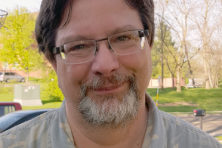Commentary: Money v. Voter … And the Winner is?
- Share
- Tweet
- Pin
- Share
By Dan Powers and Jim Black
As the title implies, there is a conflict within our electoral system. It’s not new, but it has been growing at a cancerous rate since 2010. There are a few reasons why this is so, but the most fundamental and profound rests in two 5-4 decisions made by the United States Supreme Court. The Citizens United case is the most infamous.
These rulings have eliminated the possibility of any limits on election donations to, and spending by “independent expenditure groups” called Super PACs. Super PACs can raise and spend unlimited amounts in order to influence elections, as long as they do not directly contribute to, or coordinate with, the candidate. Think negative ads, distorted facts and the massive amount of misinformation you get bombed with every election cycle.
Why “unlimited”? Because the Supreme Court has also decided that corporations, unions and other manmade artificial groups such as Super PACs have the same Constitutional rights that individuals do and that money is “free speech,” and therefore cannot be limited.
So, as spending by these outside “groups” expands, the amount of money going to the parties themselves has declined. Some argue this has caused the parties to lose control of their own beliefs, message, and in some cases, messenger. Sound familiar?
The massive spending by these outside groups also is a major reason why candidates and parties get pulled to the extremes rather than the middle in terms of policy and governing. They fear getting beaten in primaries by well-funded hardcore challengers.
On the other side of this electoral tug-of-war is you, the individual voter. And of course you also have free speech and can advocate for a candidate and send money to help get the message out or support certain policies. That levels the playing field, right?
Well, according to the Demos Research Organization, in the 2012 presidential campaign 3.7 million small donors gave the candidates $313 million dollars in small donations of $200 or less.
How did that stack up?
Well, the same $313 million was matched by exactly 32 (yes, thirty-two) of the Super PAC’s biggest donors.
Another way to look at this is, according to the Federal Election Commission, 32 percent of money raised was given by 99.74 percent of donors, while 68 percent of the total was donated by 0.26 percent (one-quarter of 1 percent) of all contributors. So, if you’re an elected official trying to get some things done, who are you going to listen to when someone asks for your time, ear and vote?
Still, the Big Question is – are you pleased with how our democracy, electoral process and governing has been working? If not, here’s how you can help now.
The nonpartisan group Wisconsin United to Amend and our local nonpartisan affiliate Door County-United to Amend think this conflict between money and voters is a problem. A big problem. And because the problem is rooted in Supreme Court rulings, we think the only permanent solution is a Constitutional Amendment that simply states:
Money is not free speech, and therefore can be limited.
Only individuals have Constitutional rights, not corporations, unions or other manmade entities such as Super PACs.
The first step, however, is to get the Wisconsin Legislature to listen to the 95 (and counting) Wisconsin communities that have already passed a resolution or referendum calling for a statewide non-binding referendum on the November 2018 mid-term election. The referendum would allow all of us to make our voice heard on money v. voters.
Back in 2015, a resolution calling for such a statewide referendum was introduced in the state legislature, but died in committee. Now is the time to tell your local and state representatives to be part of the solution and actively support a call for such a referendum in 2018.
For more information on Wisconsin United to Amend go to wiuta.org.
For more information on Door County-United to Amend contact:
Dan Powers (Sturgeon Bay), [email protected], or Jim Black (Sister Bay), [email protected].
Dan Powers is a retired educator with 35 years experience in a variety of areas from music to curriculum development and literacy instruction. He moved to Door County in 1985. Jim Black is a retiring attorney who lives with his wife, Trish, works locally to help advance an economic system which is just for their children, grandchild and community.

